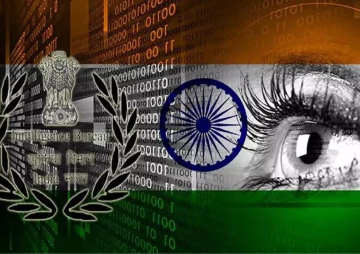"After two rounds of anti-Sri Lanka Indian vote at the UNHRC, both nations have begun starting almost from the scratch. Or, so it seems. At the meeting between Indian Prime Minister Manmohan Singh and Sri Lankan President Mahinda Rajapaksa, on the sidelines of BIMSTEC Summit in Myanmar, the two countries have "committed to be in touch" as New Delhi decides on its vote in the third US-sponsored resolution in as many years at Geneva.
As in the past two years, the West expects India to do vote with it. The US draft seems wanting to address the western perceptions of the concerns of the larger India, in tactical ways, if at all. Those perceptions relate to the ’Tamil Nadu factor’ in the short-term. They do not address India’s larger concerns, of the geo-strategic variety. One is the need for the movers of the resolution. The other is India’s own need.
After the Myanmar visit with Prime Minister Singh, External Affairs Minister Salman Khurshid has reiterated how India needs to engage with Sri Lanka for doing good to the Tamils in that country. In the historic context of the Sri Lankan ethnic issue, what India can do for the Tamils working with Sri Lanka, no other nation can. What India can do against Sri Lanka (at the UNHRC, for instance), others can. The former produced 13-A, the latter, simply nothing.
Easing the situation
At a meeting of the Foreign Correspondents’ Association in Colombo a week before he met Prime Minister Singh, Sri Lankan President Mahinda Rajapaksa, the politician that he is, said that he fully understood Indian leadership’s compulsions (read: ’Tamil Nadu factor’) to vote on a Sri Lanka resolution at the UNHRC ’in an election year’. His observations may have eased the situation before the Myanmar meeting. ’Adversity’ thus does not work with a nation, or its new-generation leader who is earthy to accept political/electoral realities, not only in his country but also in elsewhere, whether India or Europe.
At inception, the 2012 move for a UNHRC resolution was expected to pressure the Sri Lankan Government to engage with the Tamil National Alliance (TNA) for a negotiated political settlement to the ’ethnic issue’. It ended up making the Sri Lankan State and the leadership suspicious about the motives and the methods of the TNA, instead. The broken talks have yet to be revived.
The TNA and the otherwise divided Tamil Nadu polity do not understand - or, do not want to understand - global diplomatic realities. UNHRC resolutions are moved for maximum support, not necessarily for maximum impact. The pressure is also graded, spread out over years, at times decades. They will never ever satisfy the ’electoral expectations’ of the ’competitive Dravidian polity’ in Tamil Nadu.
Unity in diversity
The Tamil Nadu polity has become the unthinking foot-soldiers of motivated sections of the Sri Lankan Tamil (SLT) Diaspora, not even the Tamils still settled in Sri Lanka. INGOs that have overlooked other war-time violations of human rights elsewhere are focussing not even on Sri Lanka, but in and on India, to distance the two South Asian neighbours as much as possible. They may have a different motive and agenda, not of the altruist kind.
The SLT Diaspora has the patience that the Tamil Nadu polity lack. They are playing for the long-term - a ’separate State’ first, and a ’greater eelam’ next. They are willing to wait, and wait out other ’partners’ and even ’stake-holders’. It is unclear if the DMK in Tamil Nadu that gave up ’separation’ in favour of mainstreaming in the early Sixties, and the ruling AIADMK, which added the ’all-India’ prefix as an add-on to live down the ’separatist’ image of the DMK parent, have given any thought to the SLT Diaspora agenda and its consequences for India and all Indians.
Maybe, it’s time that the Centre read out the rule-book, if not the riot-act, to the Tamil Nadu players, on the well thought-out provisions on ’division of powers’ under the Constitution. The latter need to acknowledge that under the continuing complexities that is India, such a constitutional scheme has worked - and that it alone may still work, to retain the nation’s centuries-old ’unity in diversity’.
Cold War’s ’unfinished task’?
In the years immediately after the ’String of Pearls’ theory did its round in the post-Cold War India, Geneva may have pushed Sri Lanka back into the waiting arms of China - and India’s one-time dependable ally in Moscow. Ground realities in Sri Lanka may be different from those in Syria and Ukraine, but at Geneva this time, ’friends of Sri Lanka’, including China and Russia, Iran and Cuba, are said to be contemplating a ’counter-resolution’ to the Anglo-American draft, which in turn seems to have the EU’s blessings.
In 2012, India, though not the prime-mover in anyway, set the tone and tenor on Sri Lanka at Geneva. Today, the regional and international initiatives on Sri Lanka have slipped out of India’s hand just as the TNA too may have at another level. Whatever their intentions and goals, New Delhi cannot afford self-proclaimed ’friends of India’ repeatedly taking the Geneva route against Sri Lanka, and end up reviving Cold War’s ’unfinished task’, if it could still be called so, and ’de-stabilise’ the immediate Indian Ocean neighbourhood for the first time after the Seventies.
Coming at a time when the 50-year-long Anglo-American lease deed on Diego Garcia military base is due to end - and come up for an equally- controversial renewal - as early as 2016, Sri Lanka in Geneva has worse consequences for India than the ’targeted victim’.
The fact that the original, Mauritius ’owner/possessor’ of Diego Garcia had boycotted the Colombo CHOGM in November, literally at the last-minute, and is now among the five proposers of the UNHRC resolution along with the US, maybe a cause for politico-diplomatic concern for its ’distant’ Sri Lankan neighbour. If so, it is a greater geo-strategic security concern for India, too, over the medium and long-terms, the seeds for which are being sown, here and now, if not already.
With successive generation of children of Indian migrants from the common British past often heading elected governments since Independence, Mauritius has been a friend and ally of India. Today, the nation is set to play host to an ’international Tamil Diaspora culture conference, later this year. In contemporary SLT Diaspora context and their resources, this can mean only one thing. India has to be wary.
The anti-Sri Lankan position of Mauritius also comes at a time when the country is joining the emerging trilateral maritime security cooperation arrangement among India, Maldives and Sri Lanka, as an ’observer’ along with Seychelles, the other Indian Ocean neighbour of the three. The idea is also for inducting the the two distant Indian Ocean neighbours of the other three as members, if only over time.
First line of defence
It’s in contexts like this that China, like other nations before it, would collect IOU’s by the dozen from countries such as Sri Lanka on the political front, and cash them at a time of their choosing, possibly on the geo-strategic front. From the other side, post-Cold War US has made faster and deeper entries into nations in the ’sphere of traditional interest’ of the Indian ’friend and ally’ without obvious reference to India. Mauritius seems to be only the latest one -- but need not be the last.
In geo-strategic terms, Sri Lanka has remained the first line of defence for India on the indefensible vast Ocean front/frontier in the south. In turn, India used to be - and should have continued to be -- the first line of political defence for Sri Lanka. That was how Sri Lanka ended LTTE terrorism, even for India to breathe easy. India helped Sri Lanka to help it. Today, Sri Lanka, by reviving the ethno-political processes should help India help it. Sri Lanka’s current and future problems are outside Sri Lanka, the solutions lie within.
Barring the successful, post-war 2009 counter-resolution on Sri Lanka that it initiated along with unthinkable partners in China and Pakistan, India has voted against the collective wisdom of other South Asian neighbours by voting for a resolution moved against an immediate neighbour by a distant ’friend and ally’. India did not seem to have consulted even ’friendly neighbours’ while choosing its post-Cold War ally/allies for the Indian Ocean security, nor on the Sri Lankan vote.
China on the geo-strategic front apart, when it two-term placement among the voting members in the UNHRC ends, India will still require its neighbours. It then cannot complain if any or all of them look ’unfriendly’ and ’unapproachable’, too, if it required their backing at UNHRC or elsewhere. International diplomacy is all about collecting IOU’s and cashing them when required, which trade, it seems, at least ’political India’ is yet to master to the hilt.
India thus cannot afford to vote against Sri Lanka at UNHRC, now or later. It need not vote in its favour until Sri Lanka stands by its commitments on the ethno-political front, made to India at the height of ’Eelam War IV’, much of it even without asking. And if India needs to engage with Sri Lanka for helping the Tamils, as Minister Khurshid has reiterated, it cannot do so from a perceived position of animosity and antagonism.
A beginning thus has to be made for reversing the bilateral processes to the pre-2012 mode. It has to be made early on, if it is to be of any use to the suffering Tamils in Sri Lanka - and in the larger context of bilateral relations, as well. Otherwise, managing the ’Tamil Nadu factor’ should be India’s domestic problem. Addressing with Sri Lanka, the Indian Tamils’ umbilical cord concerns for brethren across the Palk Strait forms a part of it, too. Yet, it cannot be allowed to derail bilateral, geo-strategic relations in particular. Whether China, or the US, or any other, Tamils in India, too, would not want the neighbourhood waters troubled, whichever be the extra-regional power wanting to fish in those troubled waters!
(N Sathiya Moorthy is a Senior Fellow at Observer Research Foundation, Chennai Chapter)
"
The views expressed above belong to the author(s). ORF research and analyses now available on Telegram! Click here to access our curated content — blogs, longforms and interviews.




 PREV
PREV


